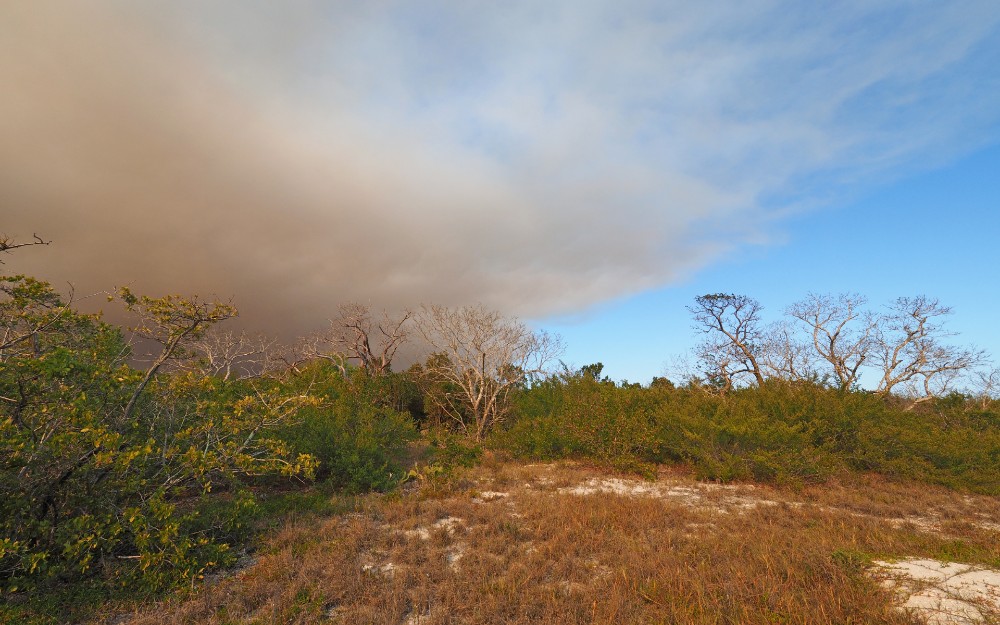- Title: Optimizing Fire Regimes in Fire Dependent Ecosystems
- Principal Investigator: Sparkle Malone
- Funding Amount: $290,591
- Funding Source: NASA Goddard Space Flight Center
- Timeline: 05/01/18–04/30/21
In the Florida Everglades, fire is necessary to maintain the unique mosaic of wetland ecosystems. Changes in climate, hydrology, and land management have altered the natural fire regime, putting fire-adapted communities at great risk. We are studying the links between fire history, hydrology, climate, and ecosystem recovery to determine how and why ecosystem recovery rates vary and estimate how they are likely to change in the future.

The Everglades provides a unique opportunity to develop an extensive monitoring system that is capable of detecting disturbances, measuring disturbance impacts and estimating recovery times. The detailed 66-year fire history (1948-2013) within Everglades National Park (ENP) can be used to understand changes in post-fire recovery rates across subtropical ecosystems. Leveraging NASA data products and geospatial fire history data from the National Park Service (NPS), this project evaluates patterns in post-fire ecosystem recovery to understand how recovery rates vary between and within Everglades fire dependent areas. Specifically, this research will enhance our understanding about how postfire recovery rates are influenced by fire history, hydrology and climate.